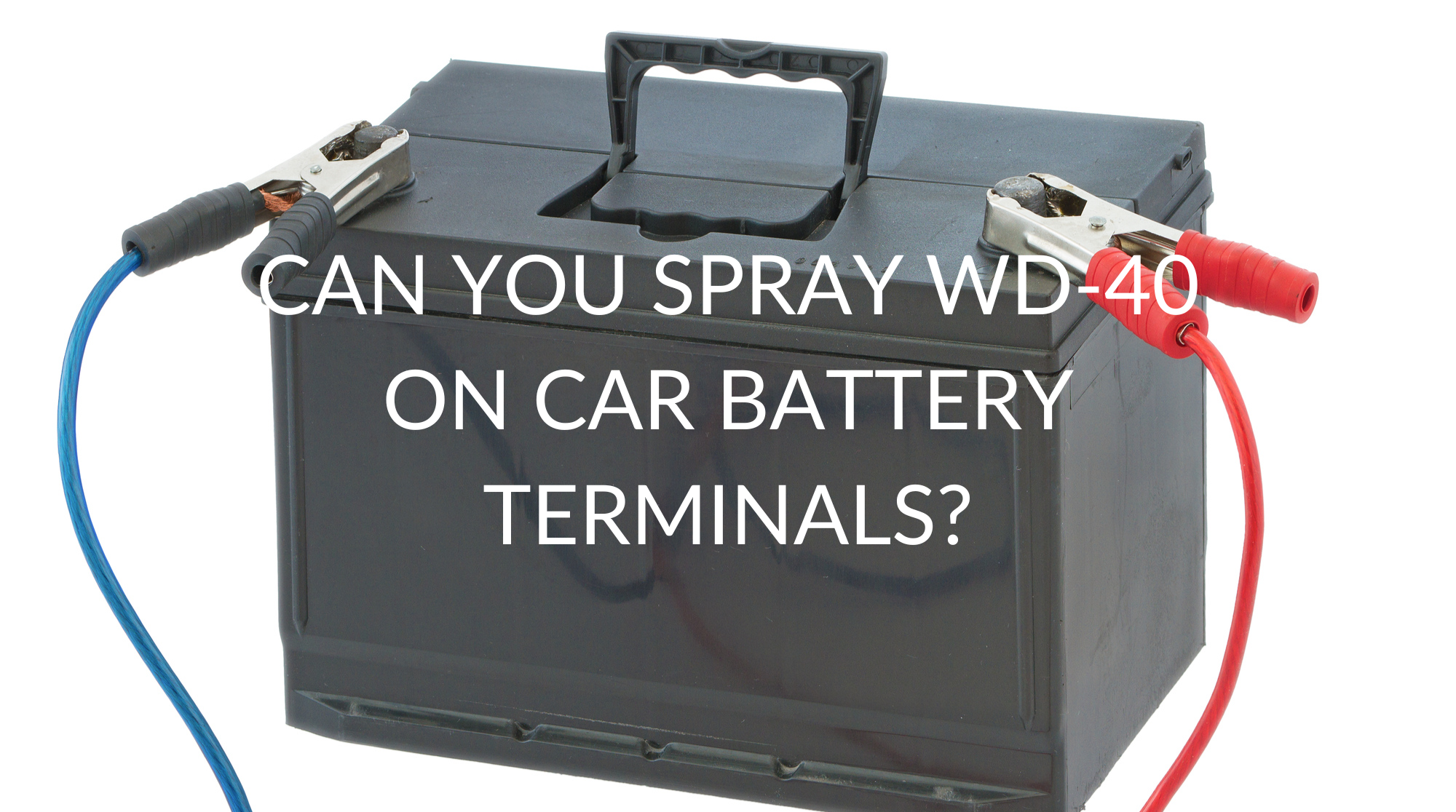If you’re wondering whether you can spray wd-40 on car battery terminals, then you’ve found the right article! In this article, not only will you find out, but you’ll also learn how to apply wd-40, what the best substitutes for wd-40 are, and much more!
So keep reading to find out everything you need to know!
Can You Spray WD-40 On Car Battery Terminals?
Yes, WD-40 Is good for battery terminals. WD-40 can help to clean corrosion from battery terminals and other metal connections. It also helps to protect against future corrosion and has a dielectric property that helps prevent electrical shorts. With the protective coating, it is recommended that you wipe off any excess product from the terminal before reconnecting the cables.
How To Apply WD-40 To Car Battery Terminals
If you plan on spraying wd-40 onto your car battery terminals, then it’s not as simple as you may first think! Here are the steps you’ll need to take.
Disconnect The Battery Terminals
First of all, disconnect the battery terminals from the cables. When disconnecting the terminals, always start with negative first and then positive. This will help to prevent any sparks from occurring when the terminals are disconnected.
Clean The Terminals
Next, you should mix baking soda and water until you’ve created a paste. Once the paste has been created, you can place it on all the areas on the terminals that have corrosion. Let the paste sit for a few minutes, and then use an old toothbrush or wire brush to scrub off any corrosion.
Spray WD-40 On The Terminals
Once all the corrosion has been removed, you can spray WD-40 onto the terminals. Make sure to cover them completely with the product and let them sit for a few minutes before wiping off the excess.

Reconnect The Battery Terminals
Finally, reconnect the battery terminals to the cables, and you should be good to go. Make sure to keep a spray can of WD-40 handy in your vehicle or garage at all times so that you can regularly apply it to your battery terminals and ensure they stay clean and corrosion-free.
And remember, when reconnecting terminals, you should do so in the reverse order of when you were disconnecting them, so start by
As a general rule, it is best to avoid spraying any products directly on the battery as this could hurt its performance and lifespan. Instead, you should focus on cleaning the terminals first and then spraying WD-40 onto them as a protective measure.
Is WD-40 Electrically Conductive?
No, WD-40 is not electrically conductive. It has a dielectric property that helps to prevent electrical shorts and protect against corrosion. This makes it an ideal product for cleaning and protecting battery terminals from further corrosion.
Can You Use WD-40 Instead Of Contact Grease On Car Battery Terminals?
Yes, you can use WD-40 instead of contact grease on your car battery terminals. It helps to protect the terminals from corrosion and has a dielectric property that helps to prevent electrical shorts. Just remember, it is important to make sure that you wipe off any excess product before reconnecting the terminals.
What Is The Best Lubricant For Battery Terminals?
The best lubricant for battery terminals is silicone grease. It is electrically non-conductive and helps to protect against corrosion. Silicone grease also helps to improve the current flow between the terminal and cable, which increases its performance. It is important to note that silicone grease should not be used on plastic as it can break down the material over time.
Conclusion
In conclusion, WD-40 is an ideal product for cleaning and protecting battery terminals from further corrosion. It has a dielectric property that helps to prevent electrical shorts and protects against future corrosion. Just make sure to wipe off any excess product before reconnecting the terminals.
Additionally, silicone grease is an excellent lubricant for battery terminals as it helps to improve current flow and protect against corrosion. Just make sure not to use it on plastic, as it can break down the material over time. With the right products and regular maintenance, you can keep your car battery terminals running smoothly for years to come.
Thanks for reading!

